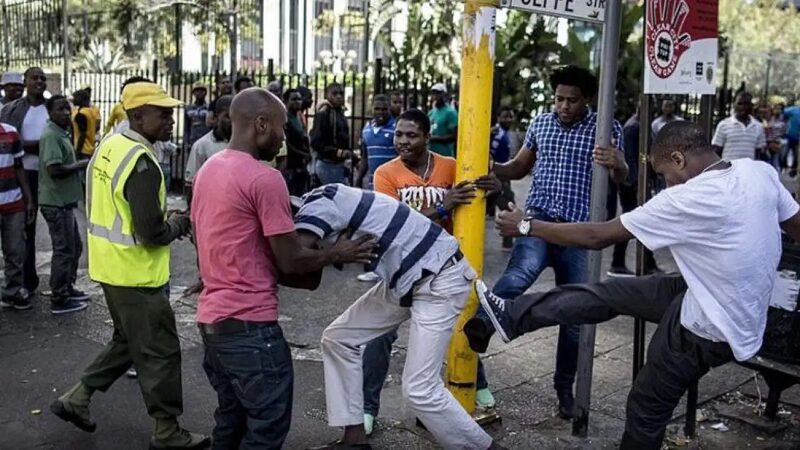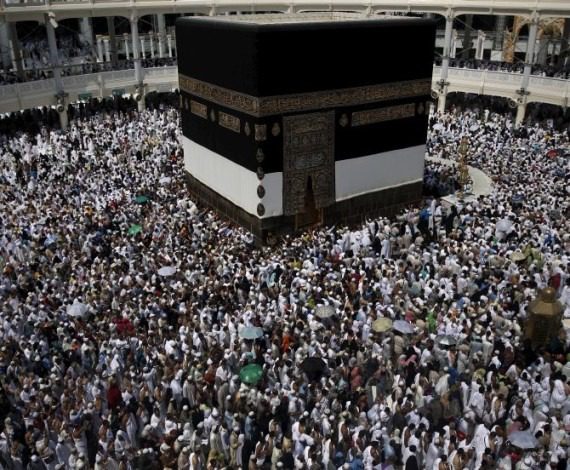Global Issues
Seeing Nigeria’s Ungrateful Neighbors Through Luke Chapter 17 verse 15 To 17 -By Isaac Asabor
Ghana became unbearably irritant to Nigeria that the Federal Government was compelled to speak out through Alhaji Lai Mohammed, the information minister, who declared as a matter of fact that enough is enough! The Information Minister had in a statement he signed on Friday, 28 August, 2021 said the Federal Government would “no longer tolerate the incessant harassment of its citizens in Ghana and the progressive acts of hostility towards the country by Ghanaian authorities.”

One of them came back to Jesus, shouting, “Glory to God, I’m healed!” He fell flat on the ground in front of Jesus, face downward in the dust, thanking him for what he had done…. Jesus asked, “Didn’t I heal ten men? Where are the nine (Luke 17:15-17)?”
To those in the Christendom, the foregoing familiar scripture no doubt highlights the expediency of being thankful whenever hand of assistance is extended to them in time of difficulties. This writer have often thought about how exciting it will be when African countries which Nigeria helped in times of need are thankful enough, particularly in this era, by reciprocating Nigeria’s philanthropic disposition towards them in the past . As it is, no African country that Nigeria has helped in the past when things were really rough with them can be blind to all assistance rendered to her in times of need. Like the ungrateful lepers, the foregoing scripture talks about, most nations that benefited from Nigeria’s magnanimity appear not to have realized how many times and the extent they were helped, and thus have continued to rationalize away many of the assistances in the similitude of the nine lepers who were healed by God and recorded in the Bible.
For the sake of clarity, Jesus Christ, on the way to Jerusalem was traversing between Samaria and Galilee. And as he entered a village, he was met by ten lepers, who stood at a distance and lifted up their voices, saying, “Jesus, Master, have mercy on us.” When he saw them he said to them, “Go and “show yourselves to the priests.” And as they went they were cleansed. Then one of them, when he saw that he was healed, turned back, “praising God with a loud voice; and he fell on his face at Jesus’ feet, giving him thanks. Now he was a Samaritan. Then Jesus answered, “Were not ten cleansed? Where are the nine? Was no one found to return and give praise to God except this foreigner? “And he said to him, “Rise and go your way; your faith has made you well.”
Without any iota of exaggeration, the foregoing scripture is a magnum opus that has to a large extent defined the trajectory of human ingratitude and actions, and in this context, nations that have forgotten how they were helped by Nigeria and Nigerians in times of difficulties.
It would be recalled in this context that Nigeria’s foreign or external intervention policy has been an important aspect of her external relations whose primary focus is on the African continent. Within her foreign intervention outreach, Nigeria relates as a regional power within the West African sub-region and as a Big Brother Nation and as a ‘Giant of Africa’ within the African continent. The reason for this pride of place are arguably fascinating.
Although Nigeria also has several external relations with the rest of the world, its role as a Big Brother Nation in Africa consist in an attachment to ensuring several fundamental objectives, chief among them are political independence of African states from colonialism, the unity and mutual coexistence of African states, the political stability of the continent and the socio-economic and political progress of Africa.
At this juncture, and within the prism of the foregoing scripture, it is expedient to say that despite the array of African countries that Nigeria helped at the time they were facing difficulties and in need that virtually all of them have remained churlish and ungrateful.
Interpreting their ungratefulness from the perspective of this scripture, it may not be wrong to say that the ungrateful countries are replicating the height of ingratitude exhibited by the nine healed lepers who never returned to Jesus to give thanks. At this juncture, one can conjecture that their collective ungrateful disposition aptly finds expression in human nature.
As deciphered from the scripture, one of the healed might have waited to see if the cure was real. One waited to see if it would last. One said he would see Jesus later. One decided that he had never really had leprosy. One said he would have gotten well anyway. One gave the glory to the priests. One said, “Oh, well, Jesus didn’t really do anything.” One said, “Any rabbi could have done it.” One said, “I was already much improved.”
Assumed from the foregoing perspective, not few African countries assisted by Nigeria in the past; when Nigeria was in all its ramifications the “Giant of Africa”. In fact, the countries have been belittling Nigeria’s magnanimity by erroneously thinking that they could have gotten the same assistance from other helpers besides Nigeria if they had sought assistance from other countries.
Think about it: are African countries that benefited from Nigeria in the past appreciating Nigeria enough for what she has done for them in the past? Or are they, like the lepers, rationalizing away Nigeria’s benevolence?
Worthy of mention in this piece is that some South Africans had for the umpteenth time unleashed xenophobic attacks on Nigerians in their country despite Nigeria’s liberation efforts in freeing South Africa from the gulag of apartheid. Aptly put, they have remained ungrateful by carrying out incessant unjustified attacks against Nigerians in South Africa.
Any reader of this piece may have an opposing view to this piece, but not a few Nigerians, and even some dispassionate nationals of the rainbow country, will concur with this writer that unappreciative disposition have been exhibited towards Nigerians. An African proverb says, “No matter the tears that impedes a child from seeing clearly when beaten, he will always see his tormentor to point at”. Interpretatively put in this context, Nigerians will always remain convinced that South Africans have for ages not being friendly and receptive to them. The reason for the foregoing perception about South Africans cannot be farfetched as evidences abound on how they have in the past maimed and killed Nigerians in their country.
Without any scintilla of hyperbole, Nigerians in Ghana are equally facing almost the same intensity of hatred other Nigerians are facing in South Africa. It would be recalled that the xenophobic disposition towards Nigerians became intolerable last two years ago, 2020, to be precise. Ghana became unbearably irritant to Nigeria that the Federal Government was compelled to speak out through Alhaji Lai Mohammed, the information minister, who declared as a matter of fact that enough is enough! The Information Minister had in a statement he signed on Friday, 28 August, 2021 said the Federal Government would “no longer tolerate the incessant harassment of its citizens in Ghana and the progressive acts of hostility towards the country by Ghanaian authorities.”
In a similar vein, the Senate in 2021 condemned the arrest and maltreatment of Nigerians by the authorities of the Republic of Benin who allegedly crossed into Nigerian territory to carry out the illegal act. The condemnation was sequel to a motion of urgent National/Public Importance moved by the Senator representing Ogun West Senatorial District, Sen Tolu Odebiyi.
In fact, without denying the fact the plight of Nigeria in the hands of her ungrateful neighbours aptly finds expression in Luke Chapter 17 verse 15 To 17, and it should be of utmost concern to countries whose nationals are wont to exhibit xenophobic act against Nigerians.



















